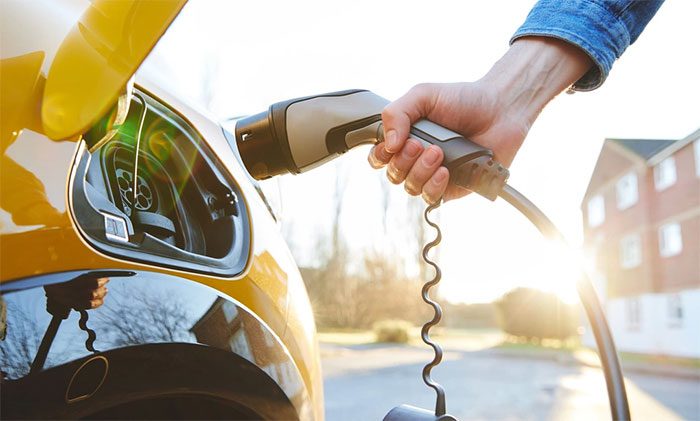The answer is yes, but the production of electric vehicles is more polluting than that of internal combustion engine vehicles. So, how are electric cars cleaner?
A new study by VDI Gesellschaft Fahrzeug, a German engineering association, indicates that when considering the entire product lifecycle — 200,000 km — electric cars are “cleaner” than gasoline or diesel vehicles, despite starting from a “dirtier” point.
The reason is that the production of electric vehicle batteries is quite polluting to the environment. However, the study shows that currently, electric vehicles need to run at least 90,000 km to offset the pollution caused during their production; electric cars are only “greener” than internal combustion engine vehicles after this threshold.

The production of electric vehicles causes more pollution than internal combustion engine vehicles. (Illustrative photo: Shutterstock).
“The accurate assessment of a product depends on many factors – the production location, the energy used during production, and the components as well as the engine system and the type of energy it uses,” said Dr. Joachim Damasky, president of VDI Gesellschaft Fahrzeug.
“Electric and hybrid vehicles carry an environmental “debt” stemming from the battery production process.” However, when considering the product lifecycle, electric vehicles are still a more environmentally friendly option.
After the 200,000 km mark, an electric vehicle will produce an average of 24.2 tons of CO2 emissions. In comparison, this figure for diesel vehicles is 33 tons, which is 36% higher.
VDI’s analysis also highlights the relatively high environmental friendliness of hybrid vehicles. Accordingly, plug-in hybrid electric vehicles (PHEVs) are said to emit 24.8 tons of CO2, just 0.6 tons more than a pure electric vehicle.
While this makes electric vehicles a more environmentally friendly choice, there is still much to improve. For instance, if an electric vehicle uses electricity generated from fossil fuels, it must run 160,000 km to truly be “greener” than an internal combustion engine vehicle.
In addition to the battery production process, the issues of battery recycling and the development of renewable energy also need to be prioritized for electric vehicles to genuinely be environmentally friendly.
VDI has put forward seven recommendations for the transportation sector to reduce overall emissions into the environment. First, they emphasize the importance of a “green” electricity network.
Second, the production of electric vehicle batteries needs to be more environmentally friendly and should be localized, rather than concentrated in Asia as it is currently, while also focusing on battery recycling.
VDI also mentioned the use of synthetic fuels (e-fuels) and encouraged the use of plug-in hybrid vehicles.
Moreover, the organization recommends enhancing the use of trains as a means of transport in urban areas.


















































